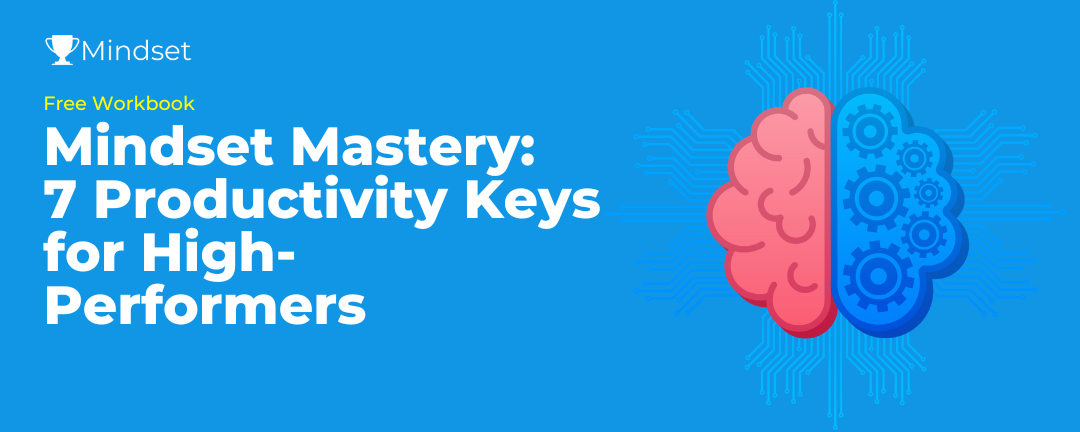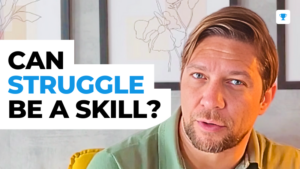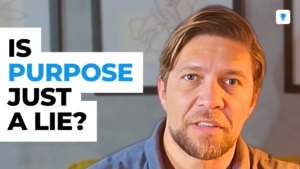.
✅ WORKBOOK ACCESS: Mindset Mastery: 7 Productivity Keys For High-Performing Leaders
Podcast Version
In a world where we are always connected, why do we feel more disconnected from our confidence than ever before?
Every day, we’re hit with a storm of notifications, messages, and social media updates.
We see perfect lives, perfect vacations, perfect bodies, and it’s hard not to compare.
What if the way back to confidence lies in the lessons of the past, from a generation that faced the Great Depression, The Spanish Flu, and World War II, yet emerged stronger?
Today, we’re going to explore their time-tested strategies to help you build unshakable confidence in today’s overwhelming digital age.
But before we get into it, make sure you grant your lifetime access to our free Workbook: Mindset Mastery: 7 Productivity Keys for High-Performing Leaders.
This is your chance to make the mindset shift you need to become a critical thinker by using the 7 mindset keys of the 1% top-performing leaders.
The Silent Generation
Imagine growing up between 1928 and 1945.
During your lifetime, you would have to survive the Spanish Flu, the Great Depression, and World War II.
These events demanded huge sacrifice, a strong sense of duty, and incredible endurance.
Families struggled just to secure basic necessities and job scarcity meant long hours of work for minimal pay.
Many men were recruited into the military and women stepped into traditionally male roles to support the war effort and provide for their families.
This generation faced such unparalleled challenges that they were given a name:
The Silent Generation.
Confidence in a Digital World
Despite the odds stacked against them, The Silent Generation found ways to reclaim their confidence and help rebuild the world we live in today.
Many successful icons of today’s mainstream media are from the Silent Generation.
The Silent Generation teaches us that confidence is not based on environmental conditions but on the idea of doing the best we can with what we have been given.
Every generation has its challenges.
Today, we deal with technological overload, changing social structures, and huge pressure to achieve more and be successful. It’s a complex environment where confidence can easily be undermined.
So, the big question is:
How can we face a hyperconnected, overwhelming, and competitive digital age without losing ourselves in the process?
The Silent Generation’s answer is still applicable today: Your mindset determines your reality. Your reality defines the meaning of success.
In the Mindset Mastery Workbook, you will discover the 7 mindset keys used by the 1% top-performing leaders to build unshakable confidence.
These actionable steps will transform your thinking, framing, and actions, turning setbacks into stepping stones.
Get your free lifetime access to this workbook today to start building confidence in the digital age now. Plus, you will have access to all future updates at no cost.
The link is in the description.
Technological Disruption: The Confidence Shaker
Modern connectivity has created an invisible force eroding our mental well-being and confidence.
A constant stream of notifications, updates, rings, and bells creates an environment where our minds are always engaged, never able to rest.
But there’s more. The curated world of social media feeds us a steady diet of others’ highlight reels. Perfect vacations, perfect bodies, perfect lives, and in comparison, our own lives feel lacking.
On top of that, our digital devices disrupt our sleep patterns. The blue light from screens interferes with melatonin production, making it harder to sleep. Poor sleep quality leads to a host of issues, including anxiety, depression, and reduced cognitive function.
Psychological Toll: The Hidden Cost of Modern Work Culture
But our generation doesn’t only suffer from the loud volume of technology.
We live in a world where success is often measured by how busy we are. The expectation to work long hours, meet tight deadlines, and push ourselves has become the norm.
This mindset, known as “the hustle culture,” equates personal worth with professional achievements.
The constant pressure to perform leads to chronic stress and burnout. The line between work and personal life blurs as we strive to meet these expectations.
Personal time is sacrificed, relationships are strained, and self-care is neglected.
But what happens when we can’t keep up?
The Educational System: Confidence Erosion
How did we get here?
Our modern education system is rooted in the 18th-century Prussian model, developed after Prussia’s defeat by Napoleon.
They implemented a military-focused system to create mindless and obedient soldiers.
In the late 19th and early 20th centuries, Western countries thought it was a great idea to import this model to create a new generation of obedient factory workers.
Schools began to resemble factories, with bells signaling shifts, strict schedules, and an emphasis on punctuality and obedience.
Even the time kids go to school today was designed to match factory shifts.
The goal was to produce reliable, efficient workers for the booming industries.
The objective was clear: break specialization and suppress natural talent.
If you don’t excel at anything, you are the perfect subject to be exploited by the corporate system.
Isn’t it ironic?
The very system designed to educate and prepare us to live a life of excellence produces obedience and conformity instead.
When was the last time you saw a success icon with a remarkable school record?
Building Unshakable Confidence
Imagine for a moment that your mind is like a sculptor’s block of marble.
Hidden within you is your true, confident self, waiting to be revealed. Every limiting belief is a piece of that marble that needs to be chipped away.
But how do you even start identifying these blocks that hold you back from seeing your true self?
Think back to moments of self-doubt when you told yourself, “I’m not smart enough,” or “I’ll never make it.”
The Meaning of Responsibility
Now, consider the word responsibility: response-ability, the ability to choose your response.
This means your behavior should be guided by your decisions, not your conditions. Why? Because you are, by nature, a proactive being.
Proactive people don’t blame circumstances, conditions, or conditioning for their behavior. Their actions are driven by their values, not their feelings.
So, what do you do with feelings? You welcome them as passengers on your journey toward purpose.
When you feel anxious, incapable, and limited, recognize that these feelings are signs you’re pushing your boundaries and attempting something meaningful.
Why would you feel anxious or limited if you weren’t striving for something worthwhile?
Using Flow to Build Confidence
Flow is a state of optimal efficiency. It’s when you’re operating at your best, achieving the most optimal results. It happens when there’s a perfect match between your challenges and your skills. You feel empowered, productive, and in control.
But flow isn’t constant.
Sometimes you’re there, sometimes you’re not. Limiting beliefs strike when there’s a mismatch between your challenges and your skills.
When your challenges are higher than your skills, you feel anxious. When your skills surpass your challenges, you feel bored.
You move towards your dreams in the dynamics of getting in and out of the flow state. When you feel anxious, add more skills. Learn more. When you feel bored, add more challenges. Do more.
Growing up is not pleasant, it’s necessary.
So, every time you feel limited, incapable, or anxious, take action no matter what! Replace “I can’t” with “I’m learning,” days with years, nature with nurture, criticism with critique, and failure with mistakes.
Building and Unbreakable Spirit
You can’t make time but you can make choices.
This is your journey.
As you chip away those old, limiting thoughts from your block of marble, you will find your true, confident self emerging.
A resilient self, sculpted from every challenge, standing ready to face any obstacle with unwavering confidence.
A piece of art made of an unbreakable spirit.





